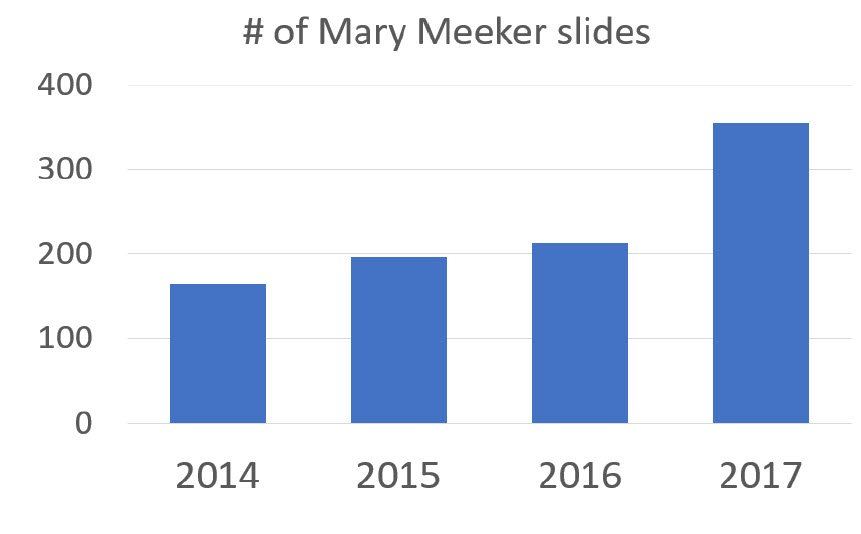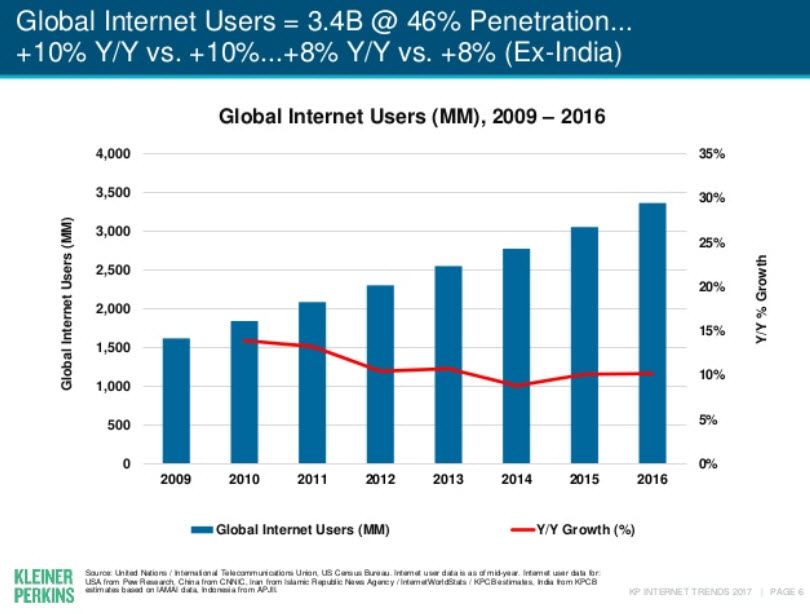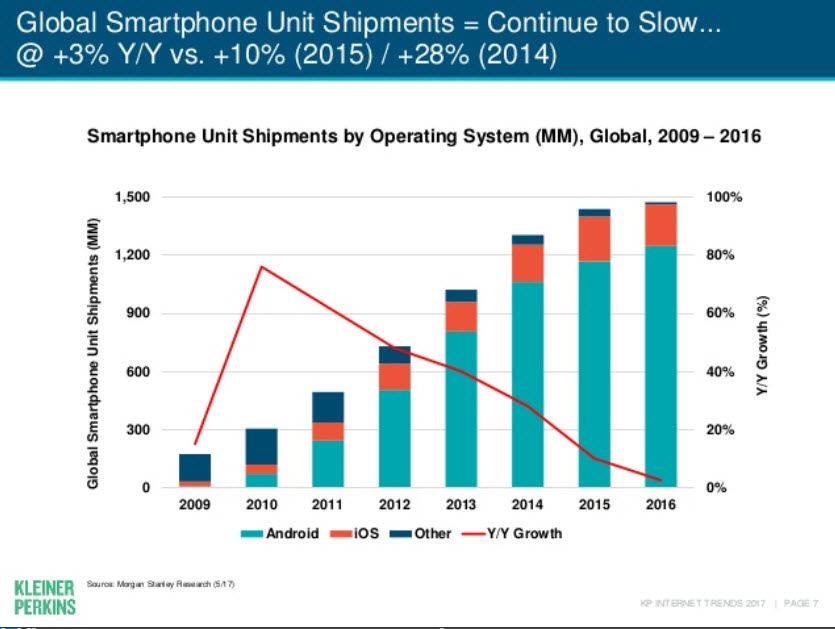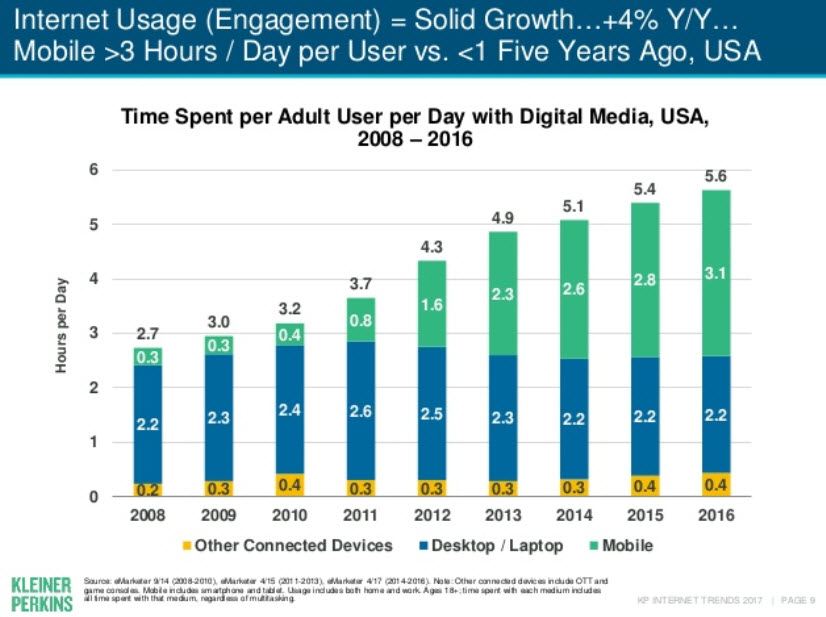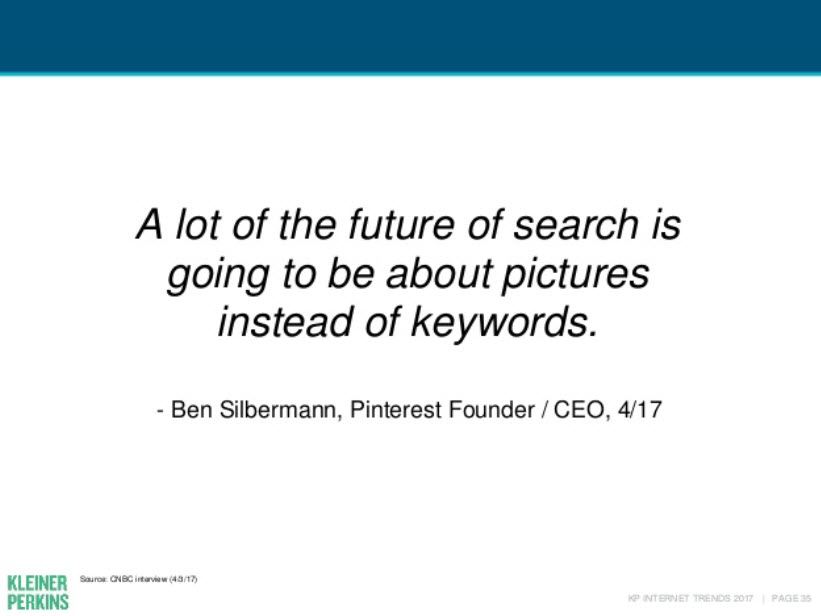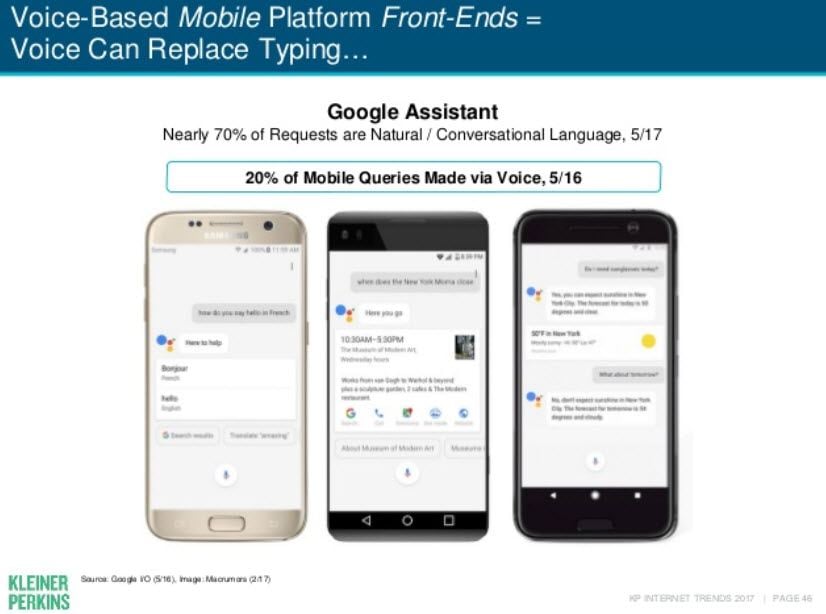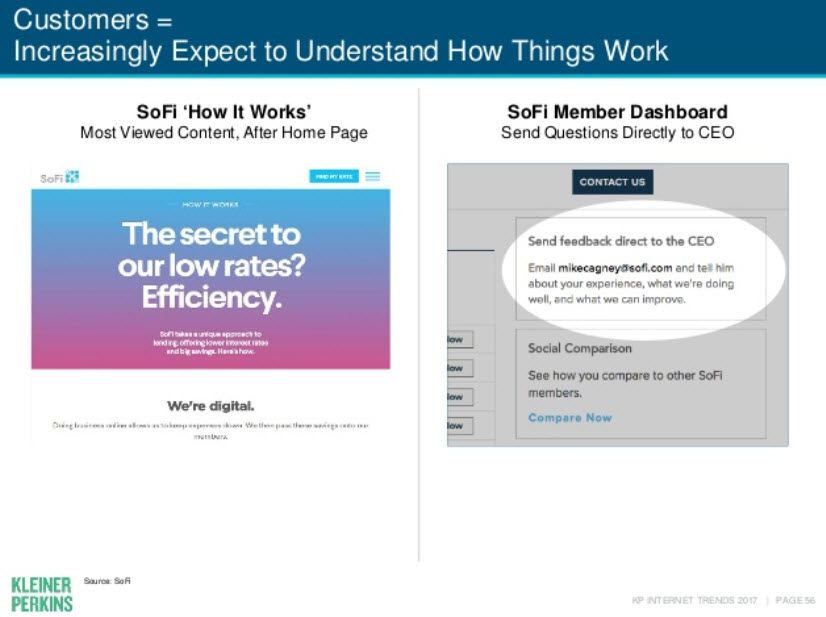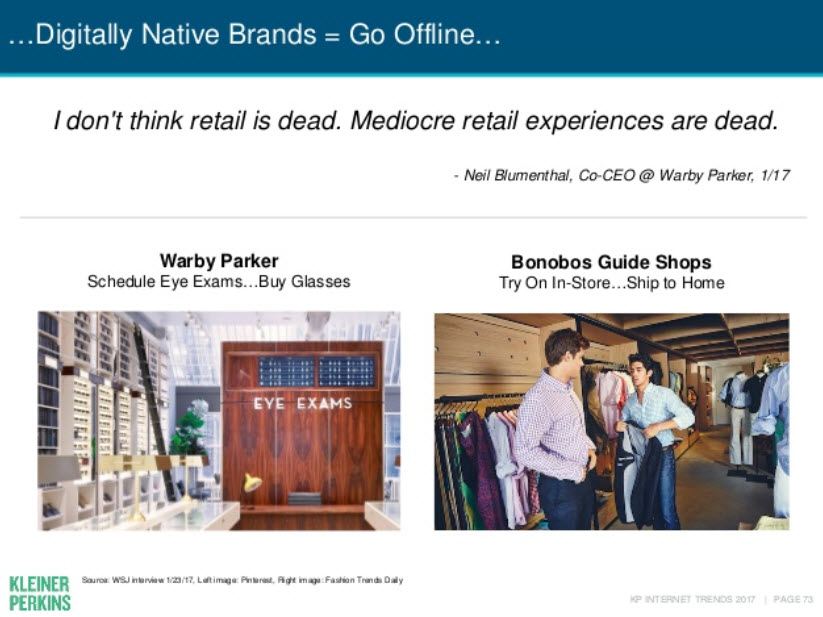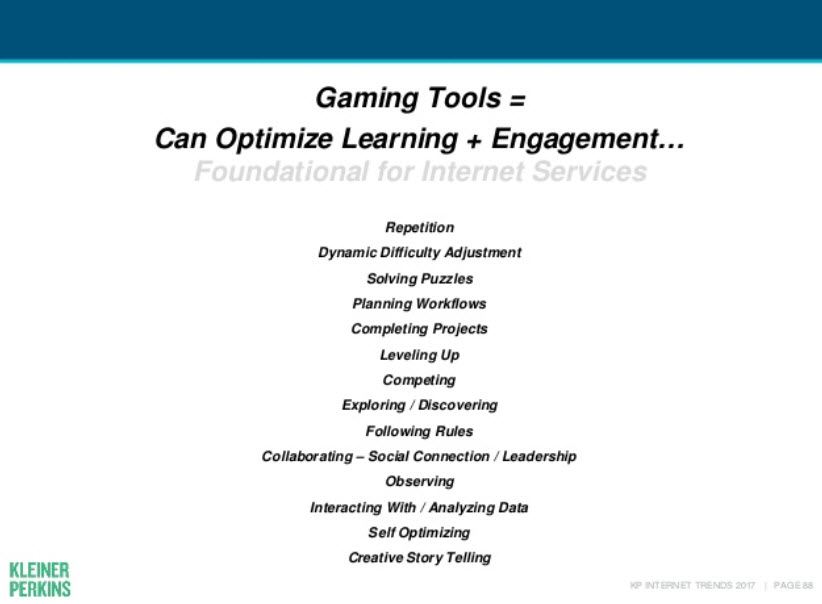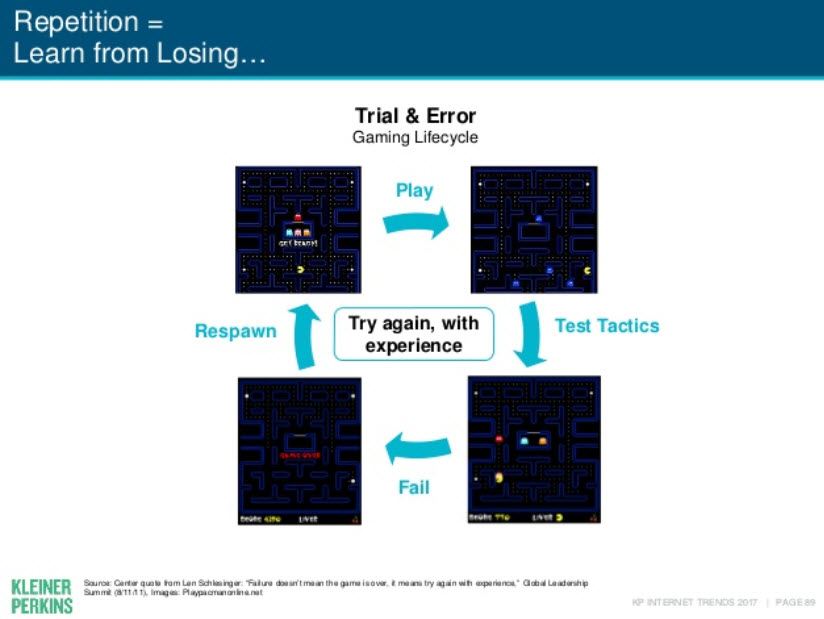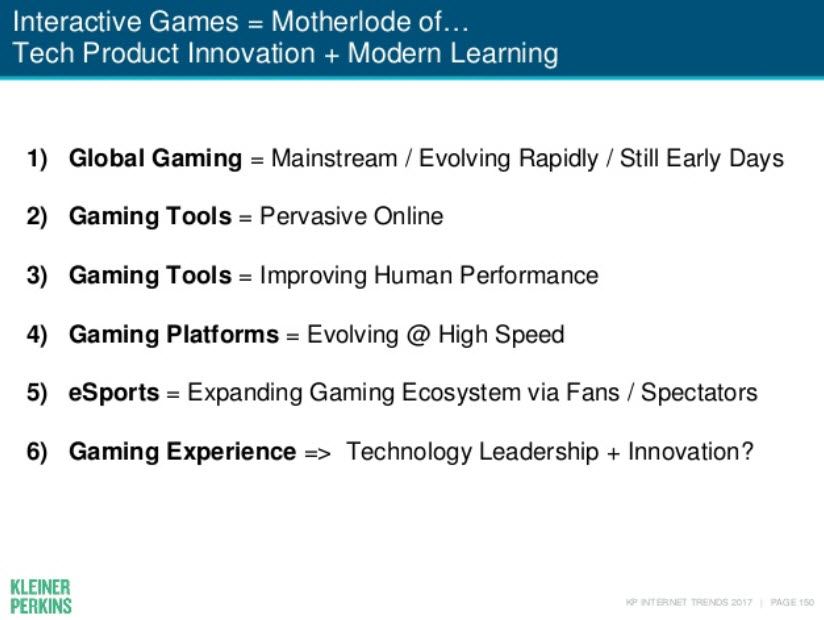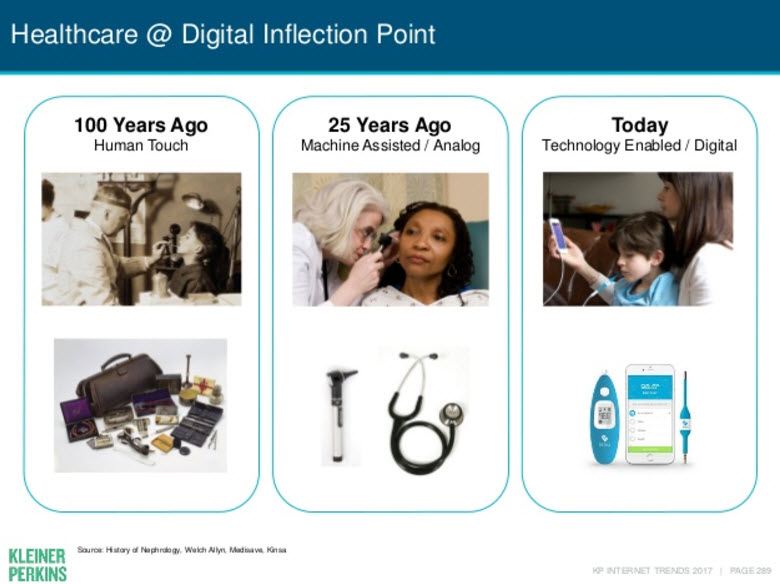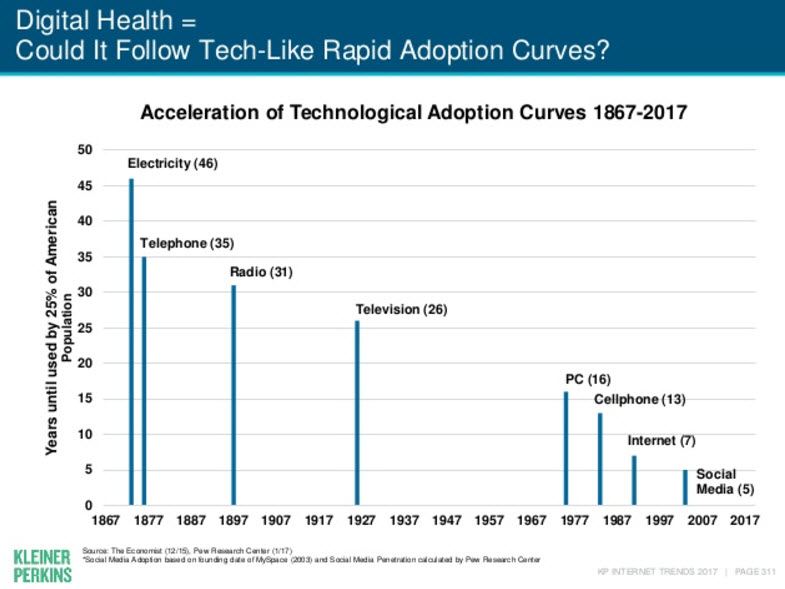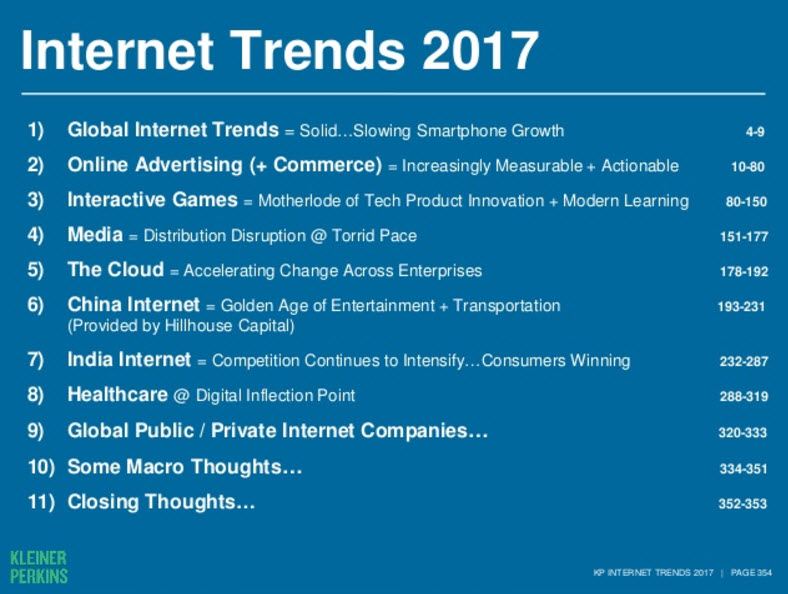Mary Meeker is out with her annual look at the “State of the Internet”…and as always, it is fascinating.
Mary has been doing this since 2002, but I first became aware of the annual report back in 2011. I have since incorporated it into my Technology and Leadership course for Creighton University. I also am fully aware of the “tl:dr” aspects, as the number of slides has continued to rise.
That said, certain slides jumped out at me during my review as trends to watch as a faculty developer in higher education.
While growth is flat, growth continues globally in internet users…in an almost linear fashion.
I have been using iPhones for 3 years…having shifted over from Android. So it surprised me how many more Android smartphones have been shipped than iPhones…but most interesting is that year to year growth in shipments has declined for past six years and is now almost zero.
The time adults in the USA spend online continues to rise…to nearly 60 percent, and percentage-wise, mobile is increasingly the way Americans access the internet…which aligns with trends I have seen in both my Masters and doctoral courses. I used to scoff at students wanting to do their course work on their phones…now it is becoming more mainsteam.
Searching visually instead of by text brings another dimension into what “scholarship” might mean…as well as what knowledge management might mean.
I found the year-to-year growth of voice queries mind-blowing…and again, it raises questions for me about learning management systems, learning activities, and how … to channel Richard Mayer … we might tap in to dual-channel learning. One wonders as well if discussion posts and papers are now being typed by Siri or Alexa?
The sidebar of customers directly interacting with CEO’s suggests similar expectations might begin to show in the student-teacher relationships. Will future syllabi have “Contact the Dean or Provost” links as a natural expectation?
While higher education is certainly not retail…I was struck by the comment “I don’t think retail is dead. Mediocre retail experiences are dead.” I can see parallels in both face-to-face and online classes. The class experience is not dead…but mediocre class experiences will drive students to alternative means of learning…and those alternative means already exist. Check out PencilTree for Crowdlearning.
We have talked about gamification of learning for years…but this slide nicely captures good reasons for gamification. Stated another way, these lead to higher order thinking skills on Bloom’s Taxonomy…and a shift from “Failure” to “Trial and Error.”
We routinely fail at digital games on our iPads…but without the stigma we attach to failing in education.
The wrap up slide on gaming…but with lots of opportunities for learning in higher education.
I will turn 67 years old (young) next month…so it looks like I am an outlier for my age bracket. My take-away lesson – all age brackets are spending time on mobile devices…so online courses need to consider this.
With my age bracket, Meeker’s slides on health care took on increased interest! I have to admit that I look for doctors today who are not afraid of technology. But the medical field in some ways is similar to the field of education…pockets of innovation but a lot of “we have always done it that way.” So seeing the trends in health care provides a window for examining trends in education.
The technology adoption curve continues to accelerate…similar to the trends discussed in Tom Friedman’s book, Thank You For Being Late: An Optimist’s Guide to Thriving in the Age of Accelerations. Social media shows the fastest curve, and I now use it in my classes and teach a class on the use of social media. Given these accelerations, how will education (and learning) change?
It is enlightening to think about how the big players on the internet have evolved. Higher education has certainly evolved as well…but not to this degree in my opinion.
Mary ends on a positive note, demonstrating that in many ways, the world has gotten better in the past 200 years. She does not show global warming, weapons of mass destruction, or the outbreaks of new diseases that have occurred in the past 200 years. Yet, I remain an optimist. I was fortunate this week to facilitate a Digital Fluency bootcamp for the School of Social Work at VCU. Listening to committed faculty who genuinely care about both their discipline and their students…this gives me much hope for the future!
One wonders…will Mary top 400 slides next year? I recommend taking the time to review the entire slide deck. I did not go into many areas she covered:
{Graphics: Kleiner Perkins}
